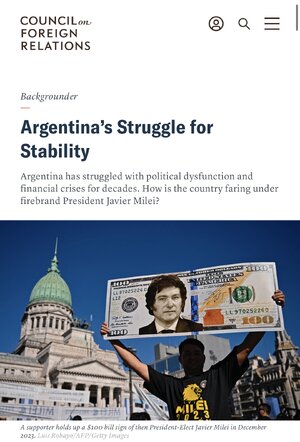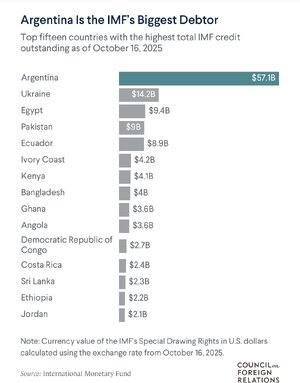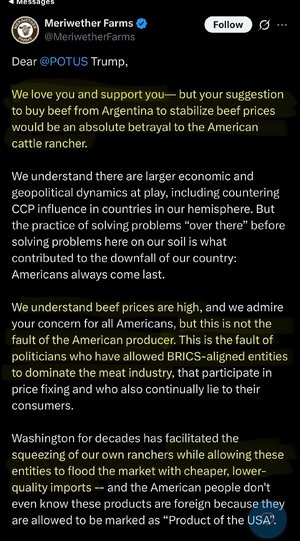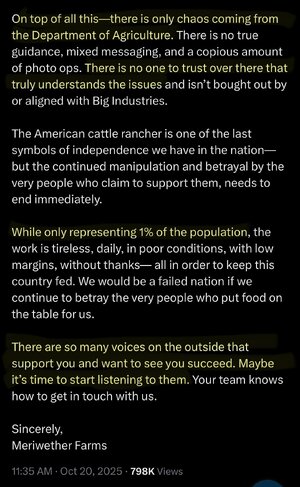- Messages
- 39,185


Argentina’s Struggle for Stability
Argentina has struggled with political dysfunction and financial crises for decades. How is the country faring under firebrand President Javier Milei?
“… Libertarian Javier Milei’s 2023 victory underscored the depth of the grieta, signaling a rejection of the Peronist establishment and the broader political elite. Milei, known by the nickname “El Loco” (“The Crazy One”), presented himself as an outsider promising drastic economic and political change. Railing against big government, he slashed the number of government ministries by almost half and has curbed the central bank’s functions, including by halting the printing of money to fund government deficits. He opposes abortion and mandatory vaccination, is skeptical of climate change, and supports drug legalization and deregulation of firearm ownership. In August 2025, Milei and his administration came under heightened scrutiny after a corruption scandal implicated his sister and other close associates—this was followed by an unexpected defeat in legislative elections in Buenos Aires, Argentina’s biggest province….

… According to World Bank data, more than half of Argentina’s GDP comes from the services sector, including tourism, with manufacturing industries such as automotives, pharmaceuticals, and chemicals making up 15 percent of GDP. Agribusiness, which makes up 6 percent of GDP, still drives much of Argentina’s exports. The country also sits on some of the world’s largest shale oil and gas reserves, though the government is increasingly looking to harness renewable energy. In addition, Argentina comprises roughly a fifth of South America’s so-called Lithium Triangle, which contains about half of the world’s known deposits of lithium, an element essential in the production of batteries. …”


